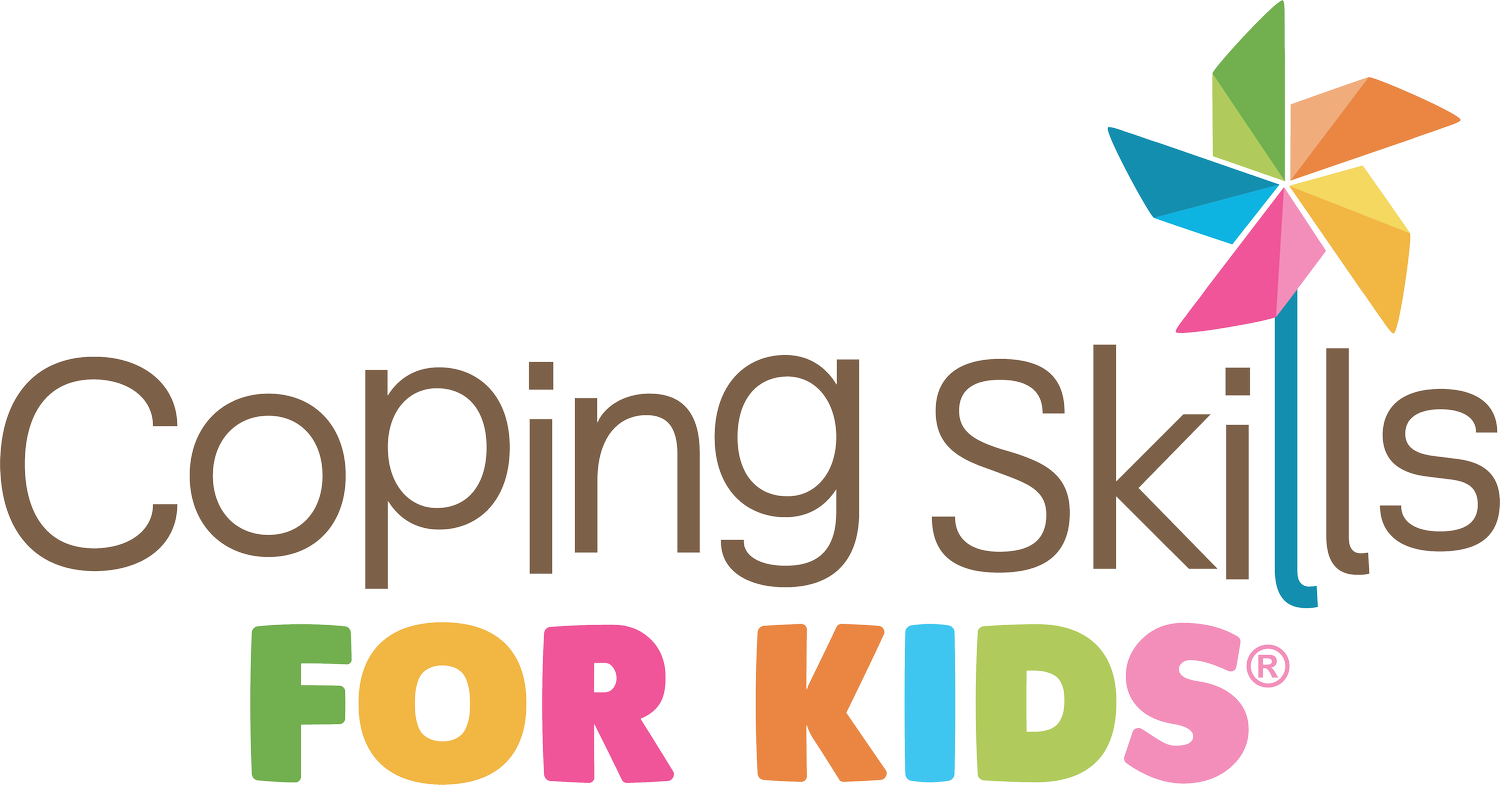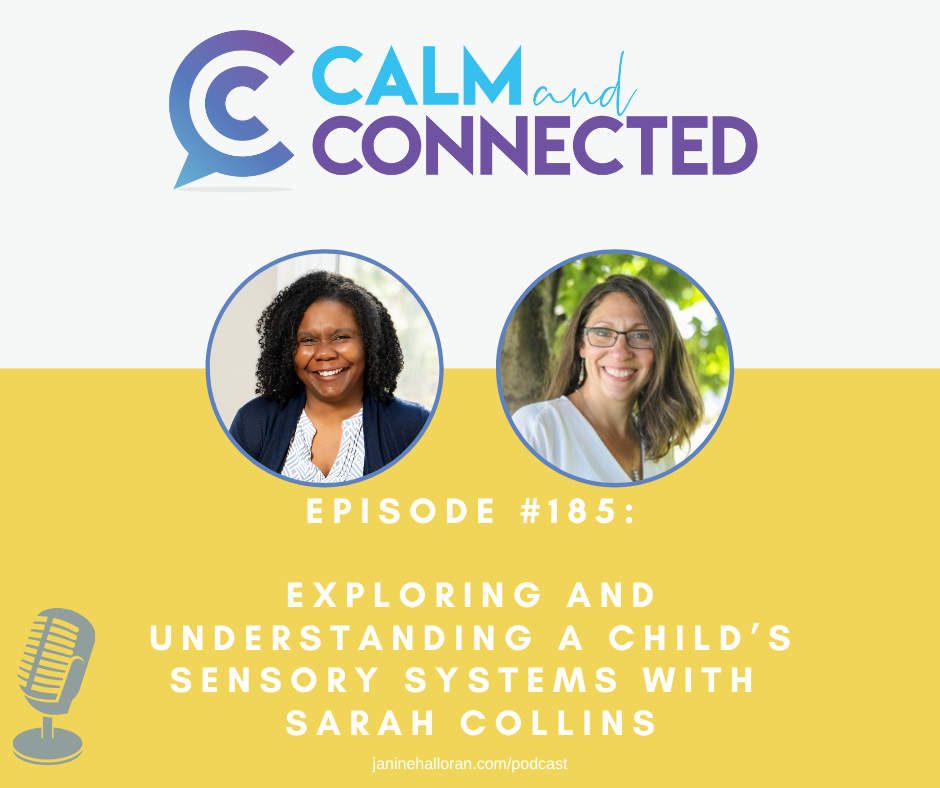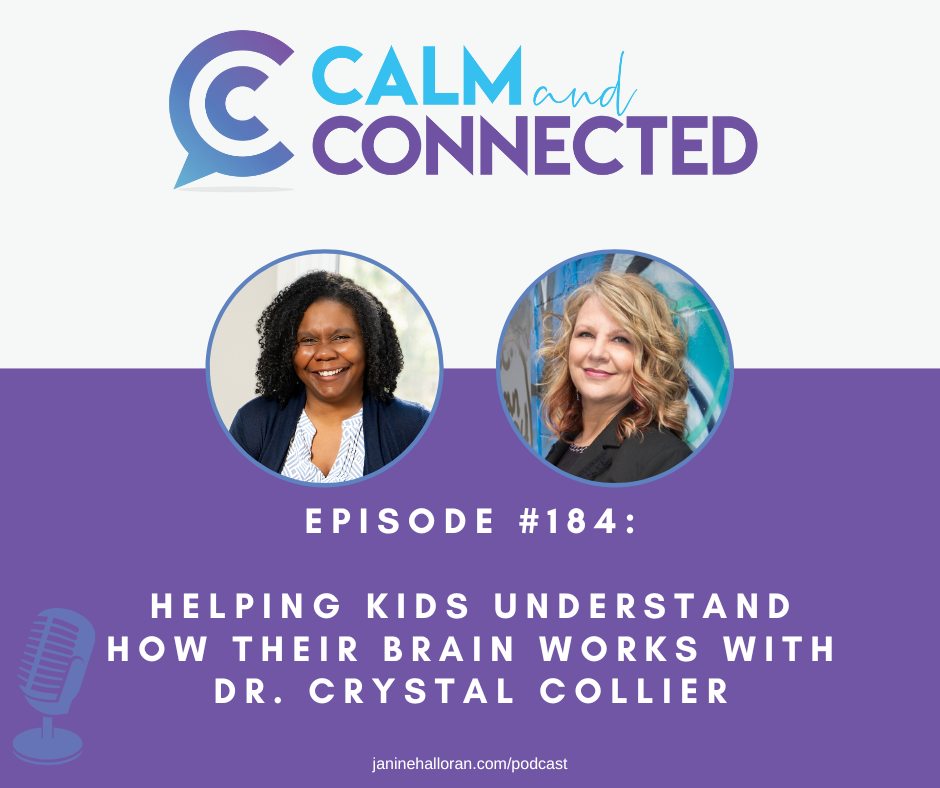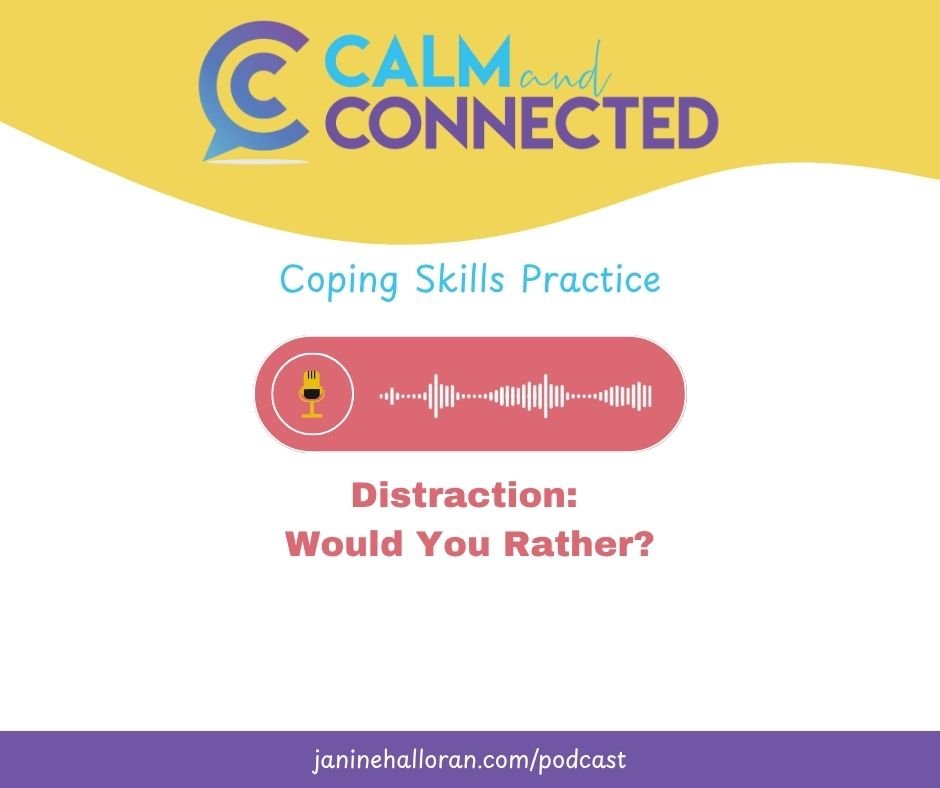It’s Tuesday during your weekly meeting with your boss. Your boss tells you that you’ll be leaving for a trip in a couple of weeks to meet with an important client. Your stomach clenches, but it’s not about the client. It’s about your son. He gets so anxious when you go away. It’s heartbreaking to hear him so upset on the phone. And you don’t know what to do because you need to go, but he has such a hard time.
You read about using coping skills to deal with his anxieties, but you have no clue what that means. You have lots of questions like -
What exactly is a coping skill?
How can that help my child?
And where do I begin?
What is a coping skill?
A coping skill is a strategy kids can use to deal with feeling angry, sad, worried or stressed. Coping skills can help a child calm down, get out anger or distract them from stressful events.
There are also coping skills you can use to help kids to learn about more their thoughts and feelings and ways to express those. They can pinpoint what’s bothering them, write in a journal about it or express their emotions through music.
Sometimes the best thing to do is to distract your child, so maybe they play a board game or read a funny book or start a garden.
How can this help my child?
There are times when you can avoid unpleasant feelings. But there are times when you can’t. Life isn’t always comfortable or enjoyable. For a kid, some unavoidable situations might be giving a class presentation, taking a big test or when a parent travels for work. Children need to learn to use healthy strategies to manage those uncomfortable feelings and situations. This is such an important life skill to learn and will help them as they get older.
Where do I begin?
When your child is anxious when you travel, you can be planful about what you do to help support him. Before you leave, figure out things that he can do to help when he experiences anxiety while you’re away. Here are five suggestions:
Before you leave, identify specific times and days that are harder. Is it easier for him to deal with on the weekends, since he’s with the rest of the family? Or is it easier for him to deal with at school, since that’s such a big distraction? Make a plan for the times that are harder.
Make a worry box, where he physically writes down his worries and put them in a special location for safekeeping. He can talk about those worries with your spouse or an aunt or uncle or another trusted adult.
Plan some fun, distracting activities that can happen when you’re away, like having a friend over to play.
He can make a special playlist that reminds him of you and listen to it when he misses you.
You two can plan a fun activity for when you get back. Maybe you have a special movie and popcorn night.
You’ve settled into your hotel room after traveling and you call home to check in. Your son sounds happy and relaxed! “I’m playing with Martin - we’re having a great time. I’ll talk to you tomorrow!!” You feel so much more at ease; you and your son will make it to Friday afternoon, when you return.













